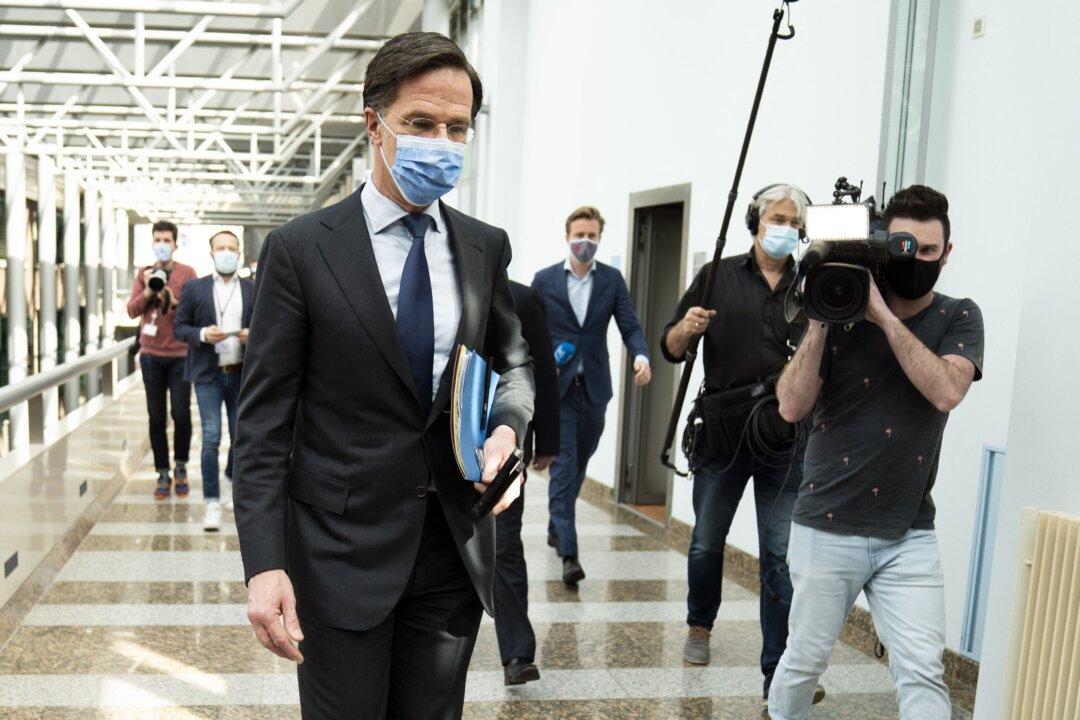AMSTERDAM—Dutch opposition parties presented a no-confidence motion in caretaker Prime Minister Mark Rutte on April 1 and accused him of lying in public about what he had privately discussed during talks to form a Cabinet, presenting the biggest challenge to his leadership in a decade.
Rutte was the clear winner of the March 17 parliamentary elections that were seen as a referendum on his handling of the coronavirus pandemic crisis. Losing a vote of confidence would cripple his ability to form a new government.





